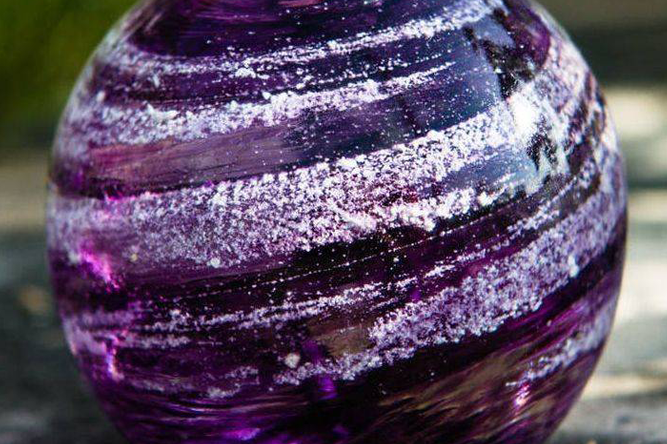Saying goodbye to a beloved pet is one of life’s most difficult experiences. When a cherished companion reaches the end of their journey, many pet owners find themselves grappling with questions about what happens next. What becomes of their furry friend’s remains? How can they honor their memory and find peace during this time of grief? This article will explore various options available for handling what happens to the bodies of euthanized animals, providing you with the information needed to make informed decisions that align with your values and beliefs.
We’ll delve into the details of pet cremation, burial, and composting services, outlining the pros and cons of each approach. Additionally, we’ll discuss factors to consider when choosing the right option for your situation and offer suggestions for honoring your pet’s memory in a meaningful way.
Pet Cremation Options
Cremation is a widely popular choice for handling deceased pets. The process involves using high heat to reduce the body to ashes, which can then be returned to the owner in an urn or other container. There are two main types of cremation: individual and communal.
Individual cremation ensures that your pet’s remains are cremated separately from any other animals. This option offers greater privacy and peace of mind for owners who want their pet’s ashes to be uniquely theirs. Communal cremation, on the other hand, involves cremating multiple pets together. While less expensive than individual cremation, it does not provide the same level of individual attention.
Benefits of Cremation
Cremation offers several advantages for pet owners. Firstly, it provides a convenient and relatively quick way to handle your pet’s remains. The ashes are typically returned within a few days, allowing you to move forward with the grieving process. Secondly, cremation eliminates the need for burial space, which can be a concern in densely populated areas or if you lack suitable land on your property. Finally, cremation allows for greater flexibility in memorializing your pet. You can choose to keep the ashes at home, scatter them in a meaningful location, or incorporate them into jewelry or other keepsakes.
Choosing an Accredited Crematory
When selecting a crematory, it’s essential to ensure they are accredited by a reputable organization such as the International Cemetery Cremation and Funeral Association (ICCFA). Accreditation guarantees that the crematory adheres to strict standards of care and professionalism.
Pet Burial Options
For some pet owners, burial offers a more traditional and comforting way to say goodbye. Burying your pet allows you to create a permanent resting place where you can visit and remember them. There are two primary options for pet burial: private burial on your property or interment in a dedicated pet cemetery.
Private Burial
Private burial involves burying your pet on your own land. This option offers the utmost privacy and control over your pet’s final resting place. You can choose a location that holds special meaning, such as a garden, wooded area, or near a favorite tree. Before burying your pet, it’s important to check local regulations regarding pet burial on private property. Some areas may have specific requirements for depth, distance from water sources, and type of casket used.
Pet Cemeteries
Pet cemeteries provide a dedicated space for the interment of animals. These cemeteries often offer a range of services, including individual gravesites, communal plots, mausoleums, and memorial gardens. Many pet cemeteries also offer personalized headstones and engraved markers to commemorate your pet’s life. Choosing a pet cemetery allows you to connect with other grieving pet owners and share in the experience of remembrance.
Pet Composting Services
As an increasingly popular alternative, pet composting offers an environmentally friendly way to handle deceased animals. This process involves decomposing the body naturally through a controlled composting system. The resulting compost can then be used as fertilizer in gardens or landscaping projects, symbolizing a return to nature and a cycle of renewal.
Benefits of Pet Composting
Pet composting is gaining traction due to its sustainability and ethical considerations. It reduces the environmental impact associated with traditional burial and cremation methods. Additionally, it offers a natural and respectful way to honor your pet’s life by returning their remains to the earth in a way that supports plant growth and ecosystem health.
Finding a Reputable Composting Service
When considering pet composting, it’s crucial to choose a reputable service provider who adheres to strict sanitation and environmental standards. Look for companies that utilize certified compost systems and have experience handling animal remains responsibly.
Choosing the Right Option
The decision of how to handle your pet’s remains is deeply personal and should be guided by your individual beliefs, values, and circumstances. There is no right or wrong answer, as each option offers unique advantages and considerations.
When making your choice, consider factors such as:
– Your budget: Cremation and burial costs can vary depending on the services chosen. Composting services may offer a more affordable alternative.
– Space availability: If you lack suitable land for private burial, cremation or composting might be more practical options.
– Personal preferences: Some individuals find comfort in having a physical resting place for their pet, while others prefer the symbolic nature of ashes.
Ultimately, the best option is the one that brings you peace and allows you to honor your beloved companion’s memory in a way that feels meaningful to you.
Honoring Your Pet’s Memory
Regardless of the chosen disposition method, there are numerous ways to continue honoring your pet’s memory after they are gone.
Consider these suggestions:
– Create a memorial space: Dedicate a special corner in your home or garden to your pet, displaying photos, favorite toys, and other cherished items.
– Plant a tree or flowers: A living tribute can serve as a constant reminder of your pet’s presence and the joy they brought into your life.
– Share stories and memories: Talk about your pet with loved ones, keeping their spirit alive through shared experiences.
– Donate to animal shelters or rescue organizations: Honor your pet’s memory by supporting causes that help animals in need.
Conclusion
Saying goodbye to a beloved pet is never easy. Understanding the various options available for handling what do vets do with dead animals can empower you to make informed decisions that align with your values and provide closure during this difficult time. Whether you choose cremation, burial, or composting, remember that honoring your pet’s memory is a deeply personal journey. Embrace the ways that allow you to celebrate their life and keep their spirit alive in your heart.



